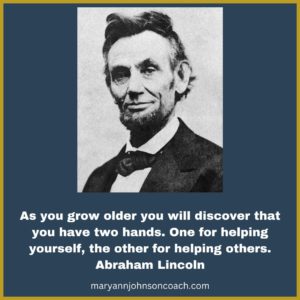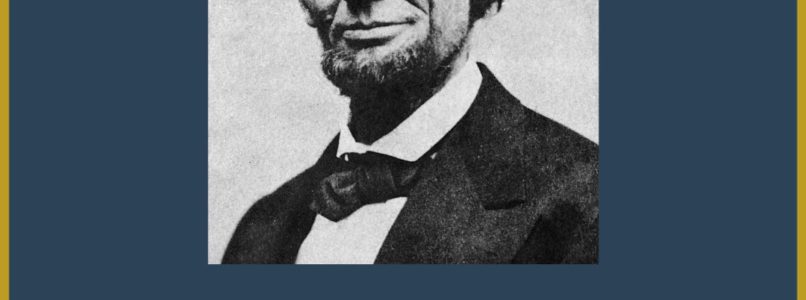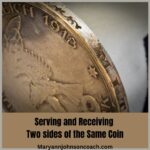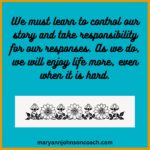 November and December are perfect months to teach our children about gratitude and sharing. It’s an excellent time to review our family culture around giving and receiving. During these months, there are multiple opportunities to teach our children that no matter how wonderful it is to receive, giving brings deep satisfaction and joy. Today I want to share a few stories about family philanthropy, but let’s begin by defining philanthropy. I took my definition from Noah Webster’s 1828 dictionary.
November and December are perfect months to teach our children about gratitude and sharing. It’s an excellent time to review our family culture around giving and receiving. During these months, there are multiple opportunities to teach our children that no matter how wonderful it is to receive, giving brings deep satisfaction and joy. Today I want to share a few stories about family philanthropy, but let’s begin by defining philanthropy. I took my definition from Noah Webster’s 1828 dictionary.
PHILANTHROPY, noun The love of mankind; benevolence towards the whole human family; universal good will. It differs from friendship, as the latter is an affection for individuals.
Did you notice that philanthropy doesn’t have anything to do with money? Interesting, isn’t it, because in today’s world, it is all about money. Usually, those we think of as philanthropists are wealthy and get their names on museums, hospital buildings, and symphony halls. If money was all that philanthropy was about, it would leave out most of the world, including me and my family.
STORY ONE
When I had my seven children at home, I took them to the nursing home on Sunday after church. I wanted them to care for the elderly and not fear their infirmities or eccentricities. After a couple of hours at church, they weren’t all that excited, but go, we did, and it never ceased to amaze me how much they enjoyed themselves once we were there.
They would sit by people in the cafeteria and ask questions, then listen to the answers. Sometimes, I saw one of them holding an older person’s hand. They did a great deal of smiling and reading. We didn’t stay long, but we always gave it thirty minutes.
This is an example of one of the ways we brought philanthropy into our family culture. Today these adults reach out in amazing ways with money and time to serve those around them. They have soft hearts for others, recognize their own blessings, and want to help the world be a kinder, more beautiful place.
STORY TWO
In my daughter’s family, they used the phrase Family Philanthropy early on. It all began with Maggie, who has severe cerebral palsy. The financial burden in the beginning was very great. After much prayer to find ways to help Maggie have the treatment she needed, they came up with Maggie’s Month, a way to receive help and make the world a better place at the same time.
During Maggie’s month, friends, family, and complete strangers came together to gather resources for Maggie and others. Some gave their time to make an event successful. Others gave money. Maggie’s month lasted only a few years, but in that time, Jodie’s children and others were privileged to reach out, share their time, talents, and resources, and gain philanthropic hearts.
Maggie’s month was about more than just helping Maggie. Maggie’s Month represented a solution to a world of serious hurting and deep needs –more people with philanthropy in their hearts.
STORY THREE
A couple of years ago, I took a class on Self-Reliance. It was about getting your life and financial affairs in order so that you could not only take care of your own needs but also help with the needs of others.
One of the lessons had a video that moved me to tears, and when I think about it now, it still moves me. I have wonderful friends in Kenya. Their hearts are full of gratitude despite lives of want and need. That is why this video moved me so much, it was of a sweet Kenyan woman. She shared that each morning she knelt and asked God who she could help and serve that day. Then she would watch for opportunities to give the only things she had, her time, her love, and her concern for another’s need. I cannot think of a finer example of philanthropy.
STORY FOUR
After Jodie’s family ended Maggie’s Month events, they began another tradition that went on for years. During November and December, they could be found once a week at a park in their large city where many were homeless. They would hand out coco and cookies and talk with the people. For a few years before Jodie began this new tradition, Don and I had gone to the park to talk with the homeless. I remember one special day when a homeless man and I discussed books. He was a reader, as I am. Just before moving on, he took a book out of his pack and said, “Can I give this to you? It’s very good, and I know you will enjoy it.” I still have the book on my shelf.
What is Family Philanthropy?
Philanthropy is a big word for turning care and concern into action, as Noah Webster described. Philanthropy is the perfect word to represent the greater hope in the four stories I have shared.
One of Jodie’s family’s mantras is, “One person can’t do everything, but everyone can do something!” Their goal with Maggie’s month, as was mine with our trips to the senior center, and the Kenyan woman’s prayer, was to inspire other families to take action on something they care about, respond to a need they see, and support a cause that matters to them as a regular part of their family culture.
Philanthropy makes us better, happier people. Science says it’s so, but more importantly, experience bears it out. Philanthropy follows the Law of Cause and Effect. My friend and financial coach, Janine Bolon said, “Depending on our religious or cultural backgrounds, we might have heard it described as:
- “The Law of Cause and Effect”
- “The Law of the Harvest
- “What you sow, that you shall reap.”
- “What goes around comes around.”
- “Birds of a feather flock together.”
- “To him that has, more shall be given.”
- “Like begets like.”
- “Do unto others as you would have them do unto you.”
But Why Family Philanthropy?
At the end of the first month, after Maggie’s Month was created, Jodie received a letter in the mail that perfectly described the WHY of her family’s efforts.
“Dear Maggie,
“When we got the email from your mom, we all looked at your website and then gathered as a family to talk about it. We all voted to do something, but it was difficult to decide what. We had so many ideas, but Mom and Dad were worried about time.
“Finally, the idea was proposed that we give you the money in our swing set savings bucket. For the past few years, we have kept a 5-gallon bucket that we put all our spare change in, in hopes of saving enough money to buy a swing set. If you get all your treatments, maybe you will be able to play on a swing set someday. “We know the Lord will bless us for helping you, and maybe we can build a swing set as a family project. We are praying for you.”
It isn’t hard to imagine the growth that happened in these children’s hearts as they jointly decided to delay their long-desired dream of a swing set for the benefit of another. The lessons learned, memories shared, and character built through this experience were incalculable and priceless.
As children, our character, and our worldview, are largely created through our family culture. Adult philanthropists who are full of hope and abundance, who heal society with both time and money, and who are generally happier, more successful people, are more likely to come from homes that practice philanthropy. Children learn by watching and participating. Parents can multiply their efforts and their long-term impact for good by engaging their whole family in philanthropic work.
Family philanthropy projects are deposits into the character and happiness of our children. Children might only be adding pennies or small amounts of their time toward a particular cause, but don’t underestimate the priceless value of those pennies and their precious time as a generation of philanthropists is raised.
We simply can’t do good and not have it affect us for good, both inside and out. Try an experiment of your own. Next time you’re feeling depressed, afraid, victimized, or suffering from a scarcity mentality or one of your children finds themselves in one of these places, determine to reach out and help someone. Plant the seed and see for yourself what kind of fruit it bears.
In the next two months, if you haven’t yet set a tradition of philanthropy in your home, consider ways that you could and then begin. I know that your family will find the joy that comes with becoming regular philanthropists. Dr. Seuss knew what he was talking about, and your heart will grow three times as well.







